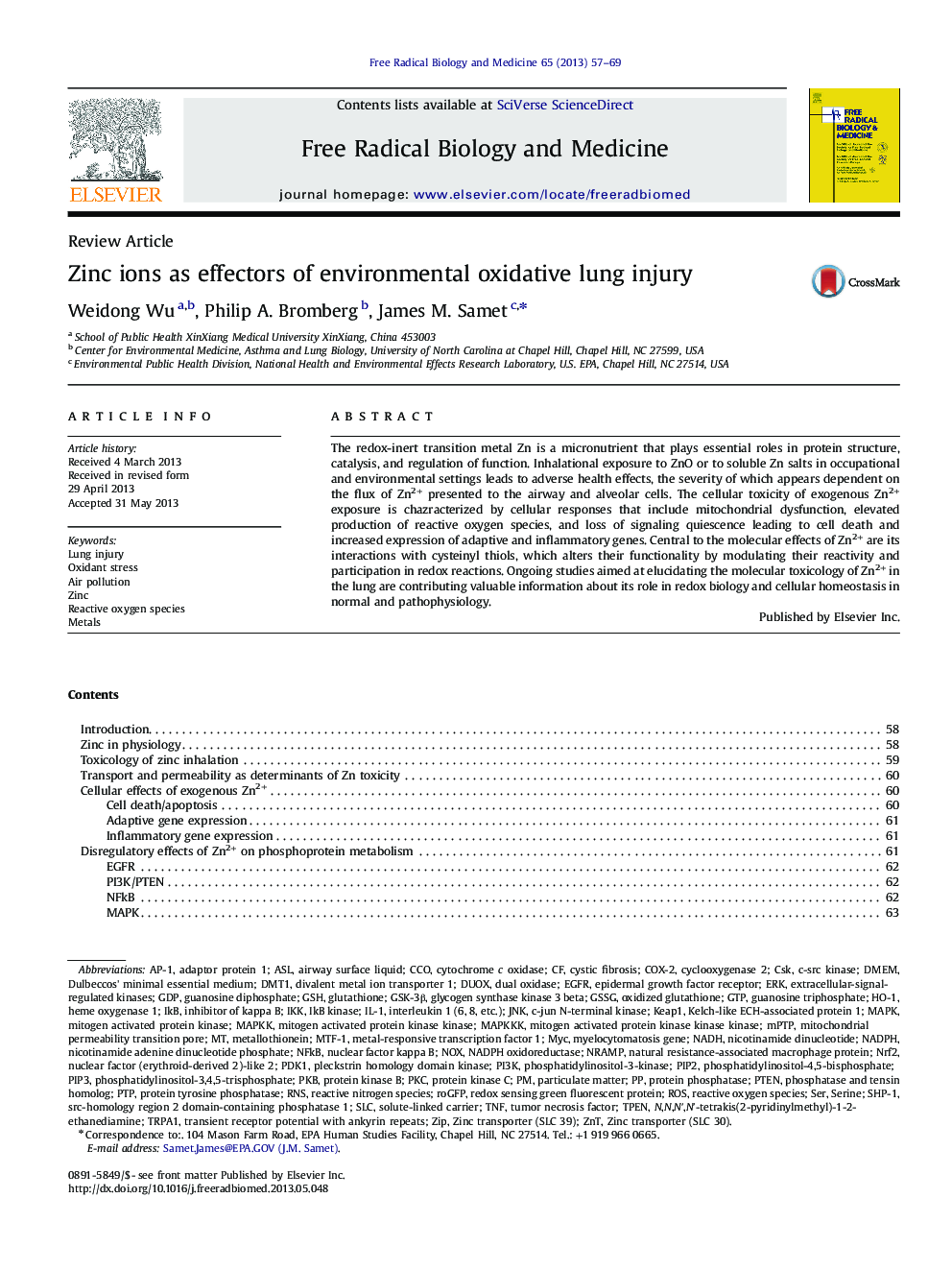| Article ID | Journal | Published Year | Pages | File Type |
|---|---|---|---|---|
| 10737903 | Free Radical Biology and Medicine | 2013 | 13 Pages |
Abstract
The redox-inert transition metal Zn is a micronutrient that plays essential roles in protein structure, catalysis, and regulation of function. Inhalational exposure to ZnO or to soluble Zn salts in occupational and environmental settings leads to adverse health effects, the severity of which appears dependent on the flux of Zn2+ presented to the airway and alveolar cells. The cellular toxicity of exogenous Zn2+ exposure is chazracterized by cellular responses that include mitochondrial dysfunction, elevated production of reactive oxygen species, and loss of signaling quiescence leading to cell death and increased expression of adaptive and inflammatory genes. Central to the molecular effects of Zn2+ are its interactions with cysteinyl thiols, which alters their functionality by modulating their reactivity and participation in redox reactions. Ongoing studies aimed at elucidating the molecular toxicology of Zn2+ in the lung are contributing valuable information about its role in redox biology and cellular homeostasis in normal and pathophysiology.
Keywords
MAPKKKTNFERKGSSGroGFPTPENPTPRNSZnTCCOGSK-3βDUOXMPTPAP-1c-Src kinasePKCSLCIKKDMT1PKBZIPIkB kinaseSHP-1IKBNFkBPDK1PIP3PIP2MTF-1CSKMAPKKIL-1EGFRPI3KTRPA1DMEMJnkCOX-2GTPASLMYCGSHHO-1NADPHNrf2keap1c-Jun N-terminal kinaseextracellular-signal-regulated kinasesMAPKMitogen activated protein kinase kinaseNOxROSLung injuryAir pollutionOxidant stressmitochondrial permeability transition poreSERGDPdivalent metal ion transporter 1dual oxidaseparticulate matterSerinecytochrome c oxidasecyclooxygenase 2tumor necrosis factornuclear factor (erythroid-derived 2)-like 2nuclear factor kappa Bphosphatase and tensin homologphosphatidylinositol-4,5-bisphosphatephosphatidylinositol-3,4,5-trisphosphatephosphatidylinositol-3-kinaseZincMetalsCystic fibrosisairway surface liquidMetallothioneininhibitor of kappa BNADHnicotinamide adenine dinucleotide phosphatenicotinamide dinucleotideheme oxygenase 1Protein tyrosine phosphataseProtein phosphatasenatural resistance-associated macrophage proteinKelch-like ECH-associated protein 1protein kinase BProtein kinase Cmitogen activated protein kinaseNrampPtenGlutathioneoxidized glutathioneglycogen synthase kinase 3 betaGuanosine triphosphateguanosine diphosphatereactive nitrogen speciesReactive oxygen speciesEpidermal growth factor receptor
Related Topics
Life Sciences
Biochemistry, Genetics and Molecular Biology
Ageing
Authors
Weidong Wu, Philip A. Bromberg, James M. Samet,
